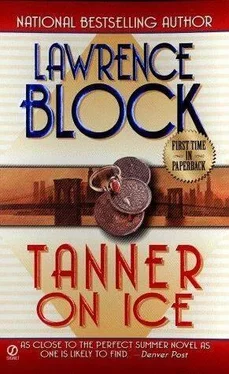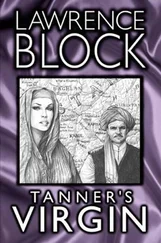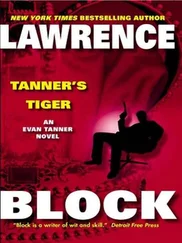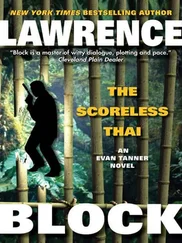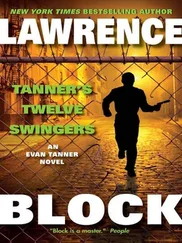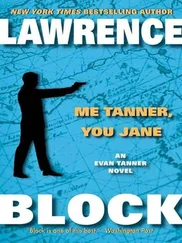“Couldn’t you get the passport and alter the date?”
“That would work fine for getting you into Burma,” he said, “but you might have problems reentering the States. The data on the passport wouldn’t jibe with what’s in the computer in Washington. That could set off an alarm or two.”
“I see.”
“Same problem if we took the easy way out and forged a passport for you. We’ve got good forgers, but they’ve got scanners that are even better. Makes it almost impossible to get into the United States with a forged passport.”
“Suppose it’s not a U.S. passport?”
“We thought of that. Give you a forged American passport for getting into Burma and a forged Belgian passport, say, for getting back to the States. Too risky, too much of a juggling act. Best thing was for you to have a legitimate United States passport, with the right photo and the wrong birth date. Same day and month, so it’s easy for you to remember, but 1958 instead of 1933.”
“But if it’s not a forgery and the date’s not altered-”
“We forged a birth certificate for you, and let the government issue a bona fide passport with an erroneous date.” He handed it over with a flourish. “Evan Michael Tanner, born 1958. Hang onto this, why don’t you? Be a nuisance to go through that again.”
I took the passport, flipped through it, winced a little at my photograph, found my visa for Burma.
“Tickets,” he said, with another flourish. “A bit roundabout, I’m afraid. You have to change planes twice, in Seoul and in Bangkok. Coming back, well, you may have to sneak out of Burma, so you probably won’t be able to use your return ticket out of Rangoon. But if you can get to Bangkok, there’s an open return to New York.”
I looked at the tickets. “Business class,” I said.
“We’re not working for Uncle Sam anymore, Tanner. And Rufus Crombie doesn’t make his boys sit in the back of the plane.” He passed me another envelope, a thick one. “Expense money,” he said. “Spend it freely and keep whatever’s left over.”
I was beginning to like the sound of this.
“You leave the day after tomorrow,” he said. “Not much advance warning, but the passport and visa took longer than planned. Sooner gone, sooner home, eh?”
“I suppose so,” I said. “There’s one thing, though.”
“Oh?”
“Either I wasn’t paying attention,” I said, “or you haven’t told me yet. But I’m not too clear on what I’m supposed to do once I get there.”
“Ah. Well, the first thing you’ll do is take a sounding. Put out some feelers, get the lay of the land. Then you’ll want to go to ground so you don’t have some SLORC lackeys following you around all the time.”
“And then?”
“Then you want to look for the best way to destabilize the government, don’t you? You’ve got the dissidents in the cities, and you’ve got the ethnic minorities in the outlying regions. From where I stand, Aung San Suu Kyi looks to be the key.”
“So should I make contact?”
“In a manner of speaking,” he said. “What the boys in the Company would call ‘contact with extreme prejudice.’”
I looked at him.
“Kill her,” he said. “What better way to make the balloon go up?”
He got a faraway look in his eyes. “The noon balloon to Rangoon,” he said. “Sailing far overhead.”
“You Americans,”Suk said. “Hopeless sentimentalists, and so illogical. You don’t eat dogs, you don’t eat cats, you don’t eat monkeys, you don’t eat horses-”
We don’t plant taters, I thought. We don’t plant cotton. But them that plants ’em…
“But you use monkeys for torturous laboratory experiments,” he said, “and dogs and cats as well. And you slaughter no end of horses and feed them to your dogs and cats. And the surplus dogs and cats, the ones nobody wants as pets, you put to death at great trouble and expense. You kill them, but you don’t eat them. You cremate them or bury them. What an absurd waste!”
“I suppose we could ship them over here,” I said. “Dead dogs for the tables of Thailand.”
He gave me a look. “You make a joke,” he said, “to hide the fact that you are squeamish.”
“Who says I’m squeamish?”
“Here comes our dinner,” he said. “Let’s see how squeamish you are. You speak like a Thai, but can you eat like a Thai?”
The plates arrived, little cubes of meat broiled satay-style on small wooden skewers, with a mound of white rice alongside and a smaller mound of curried carrots. This once ran around and barked, I thought, and nuzzled people companionably with its cold nose.
Even so, I thought, how much cuter was a puppy than a bleating wooly lamb, or a bunny rabbit, or even a baby chick? All the animals available for our delectation are either endearing, like the dog and the sheep and the hare, or disgusting, like the snake and rat and the lizard. I’d eaten some strange things in strange places, and I’d had my share of mystery meat. More dishes have been called lamb than ever wore wool. In the present instance, I was fairly sure that what they served in this klong -side outdoor café was in fact dog and nothing else. And they brought it on a clean plate.
I unskewered my meat, picked up my fork, and took a bite. Chewed, considered, chewed some more, and swallowed. I’d been prepared for a gamy taste, but if anything it was on the sweet side.
“Not bad,” I said.
“I should take another look at your passport,” Suk said. “I never thought I would live to see an American eat dog.”
“Americans were eating dog two hundred years ago,” I told him. “Lewis and Clark would have starved to death otherwise. They kept trading with the Indians, taking dogs in exchange for blankets and meal and such. And the mountain men of the Old West ate anything that turned up in their traps. Beaver and muskrat, of course, but also weasel and otter and skunk.”
He looked a little queasy himself, I was pleased to note.
“Some of those mountain men took Indian wives,” I went on, “although they may not have felt wholly committed to the relationship, no doubt for lack of a proper church wedding. In any case, there were men who got through a bad winter by slaughtering their wives and roasting them a piece at a time. I don’t suppose it happened terribly often, though you could argue that once was enough.”
He was fairly dark-complected, was Mr. Sukhumvit, but all the same he was beginning to look a little green around the gills.
“I myself,” I went on, “have never eaten human beings. Except in Africa, that is.”
“In Africa…”
“In a place called Modonoland,” I said. “There’s never been any cannibalism there, so far as I know, but there was this one madwoman there who called herself Sheena, Queen of the Jungle, a white girl, as a matter of fact, and when her men massacred people they cut off certain portions of the male anatomy. Now I can’t swear they went into the stew pot, but I can’t think what else they did with them.”
“And you…”
“I spent a few days with her merry little band,” I said. “You might say it was eat or be eaten, and don’t ask me what it tasted like because it’s hard to remember.” I took another bite of dog. “As a matter of fact…”
He held up a hand. “Please,” he said.
“I was just going to say this isn’t very spicy,” I said innocently. “Do you suppose we could get some hot sauce?”
I’d told the truth about Lewis and Clark, and about the Rocky Mountain trappers, too. And Sheena, née Jane, and her version of missionary stew. The only time I’d stretched the truth was when I asked for hot sauce. Our satay aux chien was spicy enough the way they served it. So I was showboating, but what the hell. A little hot sauce never hurts.
Читать дальше
